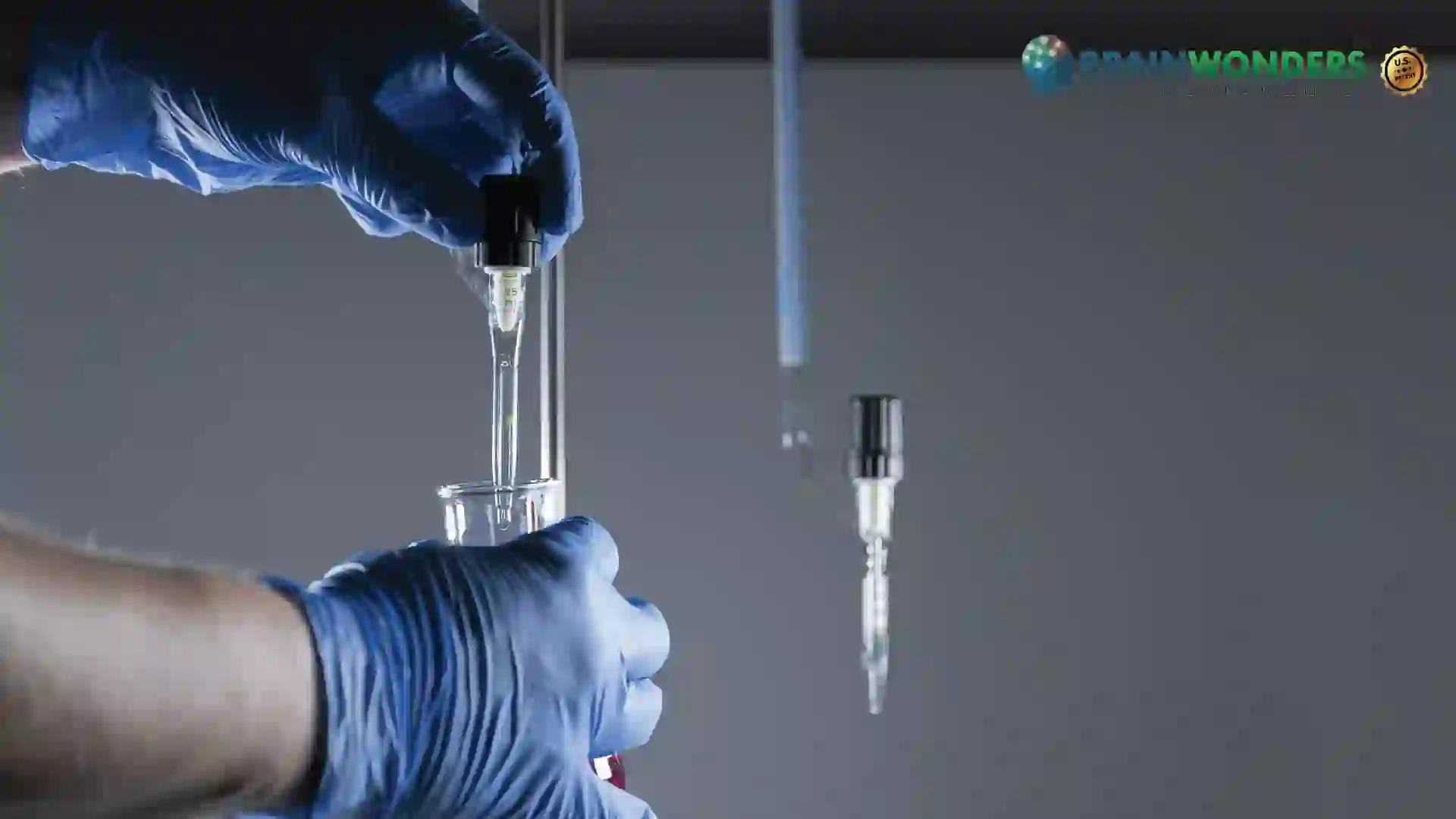How to become a Perfumer
Overview, Courses, Exam, Colleges, Pathways, Salary

Overview
Who is Perfumer ?
A Perfumer is a skilled artist and craftsman who creates unique and captivating fragrances. Employing a deep understanding of aromatics, chemistry, and sensory perception, perfumers blend natural and synthetic ingredients to compose perfumes, colognes, and scented products. With a keen sense of smell and creativity, they balance aromatic notes, such as top, middle, and base accords, to develop distinctive olfactory experiences. Perfumers may work for fragrance houses, cosmetic companies, or independently, using their expertise to evoke emotions, enhance products, and define brand identities. Their artistry involves experimentation, meticulous precision, and an ability to translate abstract concepts into alluring scents that resonate with individuals' senses and memories. Perfumers contribute to the multi-billion-dollar fragrance industry, shaping trends and creating sensory delights that enhance our daily lives.
Typical day at work
What does Perfumer do?
A Perfumer is a professional who creates fragrances by blending different aromatic ingredients to produce unique and appealing scents. Their work combines artistic creativity, scientific knowledge, and sensory expertise. Here's what a Perfumer does:
- Ingredient Selection: Perfumers carefully select a wide range of natural and synthetic aromatic ingredients, including essential oils, absolutes, resins, and synthetic compounds, based on their olfactory qualities and compatibility.
- Formula Creation: Using their knowledge of fragrance notes (top, middle, and base), Perfumers create intricate formulas that balance and harmonize different scents. They experiment with various ingredient combinations to achieve the desired fragrance profile.
- Blending and Dilution: Perfumers meticulously blend the selected ingredients in precise proportions to create fragrance concentrates. They often work with various dilutions to achieve different concentration levels in the final product.
- Sensory Evaluation: Perfumers use their highly developed sense of smell to assess and evaluate fragrance compositions at different stages of development. They analyze the evolving scent to ensure it aligns with the intended olfactory experience.
- Creative Process: Perfumers draw inspiration from various sources, such as nature, art, culture, and emotions, to conceptualize and craft unique fragrances that evoke specific moods or feelings.
- Market Research: In commercial settings, Perfumers may research and analyze market trends and consumer preferences to create fragrances that appeal to specific target audiences.
- Quality Control: Perfumers ensure that the final fragrances meet quality and safety standards. They conduct stability tests to assess how fragrances evolve over time and under different conditions.
- Collaboration: Perfumers often work closely with marketing, branding, and product development teams to align fragrances with the overall brand image and product goals.
- Continuous Learning: Given the dynamic nature of the fragrance industry, Perfumers stay updated with new ingredients, technologies, and trends in perfumery.
- Custom Creations: Some Perfumers offer custom fragrance services, creating personalized scents for individuals, special occasions, or brands.
- Documentation: Perfumers maintain detailed records of their formulas, ingredient combinations, and testing results for future reference and regulatory compliance.
- Ethical and Sustainable Practices: With a growing emphasis on sustainability, some Perfumers focus on using responsibly sourced and eco-friendly ingredients.
- Education and Workshops: Experienced Perfumers may conduct workshops, seminars, and educational sessions to share their knowledge and passion for perfumery.
Abilities and Aptitude needed
What are the skills, abilities & aptitude needed to become Perfumer?
Here are the essential abilities, skills, and aptitudes needed to excel in this aromatic and imaginative profession:
- Keen Olfactory Perception: A heightened sense of smell is paramount. Perfumers must be able to discern and differentiate between various aromatic notes, nuances, and combinations.
- Creativity and Artistry: Perfumers are artists who conceptualize and craft fragrances that evoke emotions and tell stories. A creative mindset is essential for composing unique and captivating scents.
- Chemistry and Formulation: Understanding the chemical interactions between fragrance ingredients, their properties, and how they evolve over time is crucial for creating stable and harmonious blends.
- Memory and Recall: Perfumers rely on memory to recall and recreate complex fragrance compositions. Developing the ability to remember and reproduce specific scents is essential.
- Attention to Detail: Perfumers must work with precision, measuring ingredients accurately and ensuring consistent proportions in their formulations.
- Persistence and Patience: Experimentation is a key part of perfumery. Perfumers must be patient and persistent in refining their formulas to achieve the desired olfactory profiles.
- Scientific Knowledge: While an artistic field, perfumery also involves a scientific understanding of aromatic compounds, chemical reactions, and formulation principles.
- Communication Skills: Perfumers often collaborate with cross-functional teams, including marketers, designers, and brand managers. Effective communication ensures the fragrance aligns with the brand's vision.
- Research and Trends: Staying informed about fragrance trends, consumer preferences, and emerging ingredients helps Perfumers create scents that resonate with target audiences.
- Adaptability: The ability to adapt to client preferences, market demands, and evolving industry regulations is crucial for maintaining relevance and success.
- Ethical and Sustainable Practices: With the growing emphasis on sustainability, ethical sourcing, and eco-friendly practices, Perfumers should have a commitment to responsible ingredient selection.
- Business Acumen: For independent Perfumers or those working on custom creations, business skills such as pricing, marketing, and client relations are important.
- Aesthetic Sensibility: A refined aesthetic sense helps Perfumers balance and harmonize different fragrance notes to create pleasing and well-rounded compositions.
- Emotional Intelligence: Understanding how scents evoke emotions and memories helps Perfumers create fragrances that resonate on a deeper level with consumers.
- Continuous Learning: The field of perfumery is constantly evolving. Perfumers should have a curiosity and willingness to learn about new ingredients, techniques, and industry advancements.
- Organization and Record-Keeping: Perfumers must maintain meticulous records of ingredient combinations, formula adjustments, and testing results for consistency and regulatory compliance.
- Cultural Awareness: Perfumers working on global projects should be attuned to cultural differences in scent preferences and interpretations.
- Patience and Adaptation: Developing expertise in perfumery takes time. Perfumers should be patient with themselves and adaptable in refining their skills.
Salary
Salary for Perfumer?
Salary of Perfumers is as follows :
- Minimum Monthly Salary: Entry-level Perfumers can expect a minimum monthly salary ranging from INR 25,000 to INR 35,000. These initial earnings are common for individuals who have recently graduated and are beginning their careers in perfumery.
- Maximum Monthly Salary: Highly experienced and renowned Perfumers with years of practice, a distinguished portfolio, and expertise in crafting complex and sought-after fragrances may earn anywhere from INR 60,000 to INR 1,20,000 or more monthly. Perfumers working with luxury brands, niche perfumeries, or prestigious fragrance houses may command higher salaries.
- Annual Salary: The annual salary for entry-level or junior Perfumers could range from INR 3,00,000 to INR 4,80,000. Perfumers gain more experience, develop unique fragrance formulations, and establish themselves in the industry. Their annual income can increase from approximately INR 6,00,000 to INR 12,00,000 or higher.
- Highest Paying Jobs and Scope: Perfumers specializing in crafting signature scents for luxury brands, developing unique fragrance concepts, and creating innovative aromas often enjoy better salary prospects. Working with prestigious fragrance houses, collaborating with renowned designers, and contributing to high-end product lines can significantly enhance earnings. The role of Perfumers is essential in shaping the olfactory identity of products and brands across various industries. With the growing demand for personalized and sensory-driven experiences, skilled Perfumers will likely find ample opportunities. Staying updated with emerging scent trends, mastering the art of blending, and refining their olfactory expertise will contribute to a Perfumer's success and advancement in the competitive fragrance industry.
Pathways
How to become an Perfumer?
Entrance Exam
Entrance Exam for Perfumer ?
Courses
Which course I can pursue?
Best Colleges
Which are the best colleges to attend to become an Perfumer?
Industries
Which Industries are open for Perfumer?
Perfumers have a range of industries and sectors where they can apply their expertise and contribute to creating unique and captivating scents. Here are some industries that offer opportunities for Perfumers:
- Fragrance Houses: Perfume and fragrance companies are Perfumers' most direct and traditional employers. These companies specialize in developing various fragrances for perfumes, colognes, and other scented products.
- Cosmetics and Personal Care: Cosmetic companies create scented products such as body lotions, creams, soaps, shampoos, and other personal care items that require the expertise of Perfumers to enhance the sensory experience.
- Home Fragrance: Companies that produce scented candles, diffusers, air fresheners, and other home fragrance products rely on Perfumers to create appealing and evocative scents.
- Fine Fragrance Brands: Luxury and designer fragrance brands often employ Perfumers to craft signature scents that embody their brand's identity and values.
- Niche and Artisanal Perfumeries: Independent and boutique perfumeries focus on creating unique and unconventional fragrances, offering Perfumers the freedom to explore their creativity and experiment with innovative blends.
- Flavour and Food Industry: Perfumers can apply their skills to the flavour industry, creating aromatic compounds used in food and beverage products to enhance taste and smell.
- Aromatherapy and Wellness: The wellness industry utilizes scents for relaxation, stress relief, and emotional well-being. Perfumers can create essential oil blends for aromatherapy products.
- Scent Marketing and Branding: Businesses use scents to create memorable brand experiences. Perfumers can develop signature scents for retail stores, hotels, and other establishments.
- Textiles and Fabrics: Perfumers can work with fabric and textile companies to develop scented products like perfumed fabrics, sachets, and scented linens.
- Research and Development: Perfumers may collaborate with research institutions and laboratories to innovate and develop new fragrance compounds and delivery systems.
- Academic and Educational Institutions: Perfumery schools, universities, and educational programs may hire Perfumers as instructors or consultants to teach aspiring perfumers.
- Custom Perfume Creation: Independent Perfumers often offer custom perfume creation services, working with individuals to develop personalized scents.
- Natural and Organic Products: Companies focused on natural, organic, and eco-friendly products may seek Perfumers with expertise in using sustainable and ethically sourced ingredients.
- Perfume Packaging and Design: Perfumers can collaborate with packaging and design companies to ensure the fragrance aligns with the visual and tactile aspects of the product.
- Scent Analysis and Evaluation: Perfumers may work with sensory analysis and market research firms to evaluate consumer preferences and trends in fragrance.
- Fragrance Trend Forecasting: Trend agencies and consultants may seek Perfumers' insights into emerging fragrance trends and consumer preferences.
internship
Are there internships available for Perfumer?
While internships in perfumery can be competitive and vary in availability, here are some potential avenues where you might find internship opportunities:
- Fragrance Houses: Established fragrance companies often offer internships or apprenticeships for individuals interested in learning the art and science of perfumery. Interns may work under the guidance of experienced Perfumers, assisting in various aspects of fragrance creation.
- Cosmetic and Personal Care Companies: Companies that produce scented products, such as perfumes, colognes, body care, and home fragrance items, may offer internships to individuals interested in the fragrance development process.
- Research and Development Labs: Some larger companies or research institutions have R&D labs on fragrance development. Interns may be able to contribute to ongoing projects and learn about fragrance formulation and testing.
- Custom Perfume Studios: Boutiques or independent perfumeries may offer internships for those interested in creating custom fragrances or learning about small-scale perfume production.
- Natural Ingredient Suppliers: Companies that supply natural essential oils, botanical extracts, and aroma compounds to the fragrance industry may offer internships to individuals interested in learning about raw materials and their uses in perfumery.
- Educational Institutions: Perfumery schools and universities with fragrance programs may offer internships as part of their curriculum. It can provide students with practical experience in applying their classroom knowledge.
- Online Perfume Communities: Participating in online perfume forums or communities may lead to connections with established Perfumers who offer mentorship or internship opportunities.
- Networking: Attend perfume-related events, workshops, and conferences to connect with industry professionals who may offer internship opportunities.
- Craft Perfumers: Independent perfumers or niche fragrance brands may provide internship opportunities for individuals interested in learning about the creative process of crafting artisanal fragrances.
- Trade Shows and Exhibitions: Attending industry events and trade shows related to perfumery can help you connect with potential internship providers.
Career outlook
What does the future look like for Perfumer?
The future for Perfumers is promising as the demand for unique and captivating scents continues to grow across industries. With increasing consumer interest in personalized and natural products, Perfumers who can craft innovative and sustainable fragrances are well-positioned. Advancements in technology and chemistry offer new possibilities for ingredient exploration and formulation. The rise of niche and artisanal perfumery creates opportunities for creative expression. Additionally, the expansion of wellness and aromatherapy markets further enhances prospects. Collaboration with diverse sectors, such as cosmetics, food, and textiles, allows Perfumers to apply their skills. However, competition may also intensify, emphasizing the need for continuous learning, adaptability, and staying attuned to evolving consumer preferences and regulatory standards. Perfumers who combine artistic talent, scientific knowledge, and a keen understanding of market trends will likely thrive in this dynamic and aromatic field.







